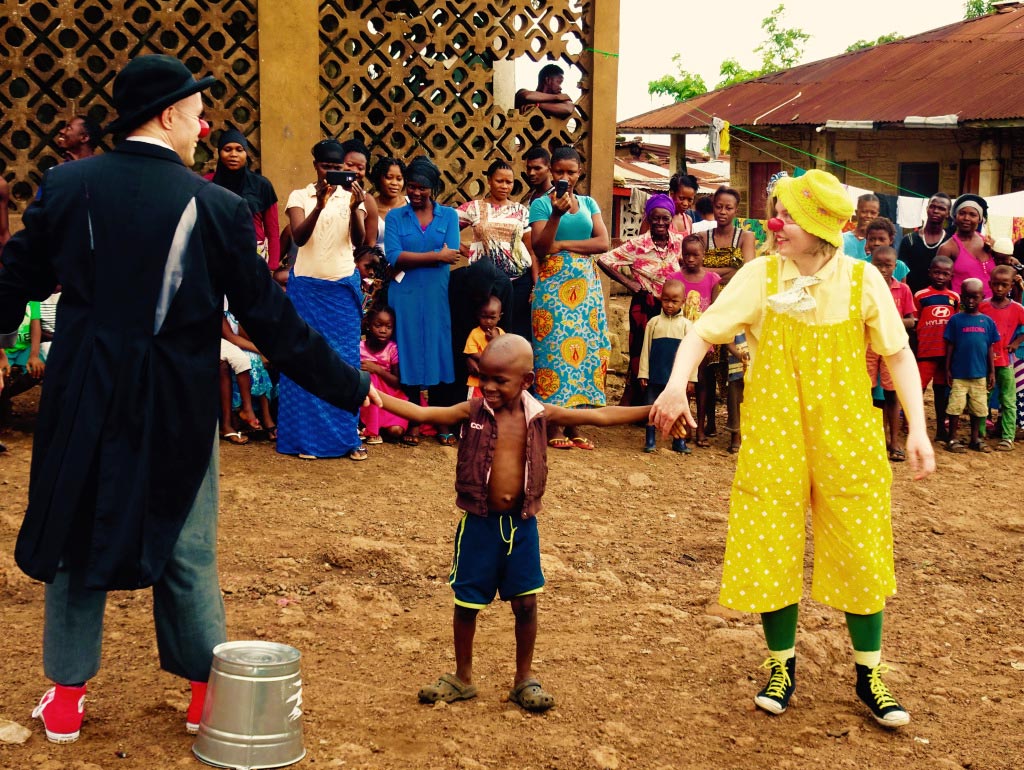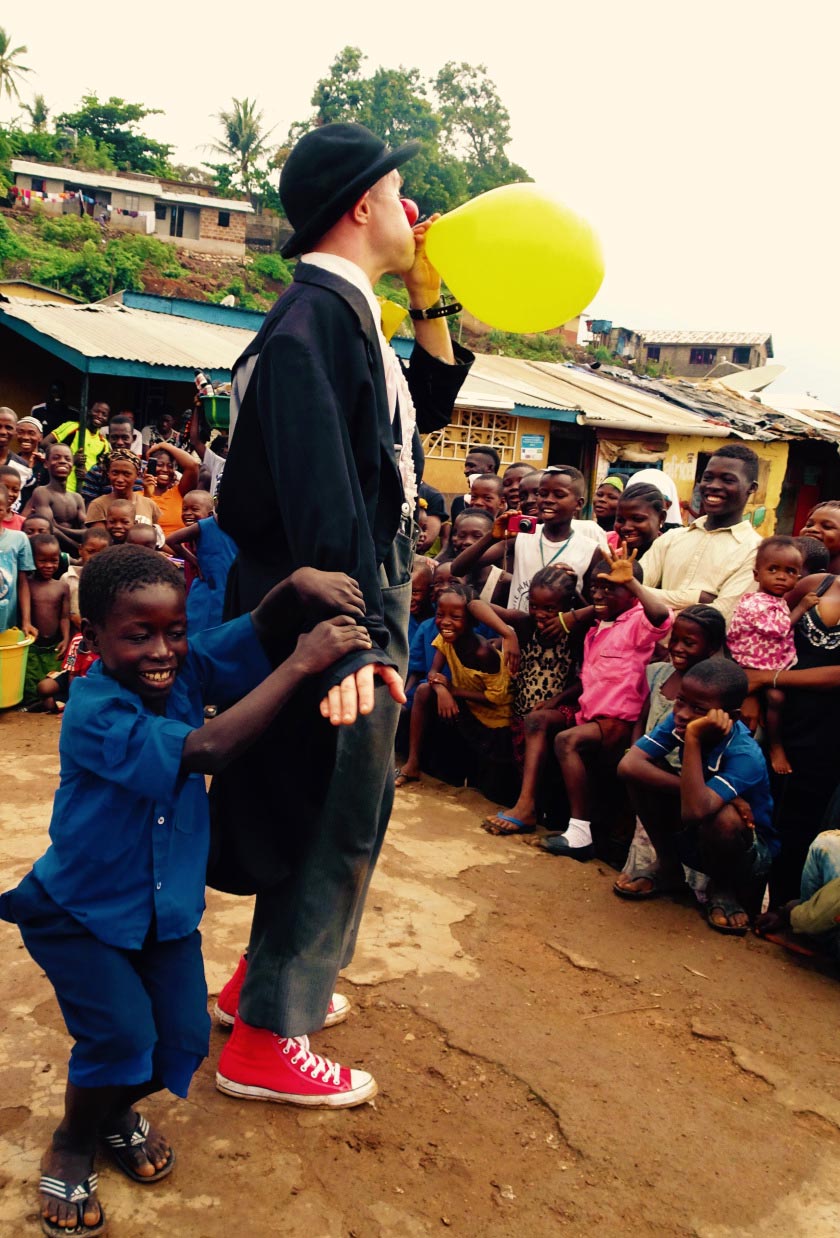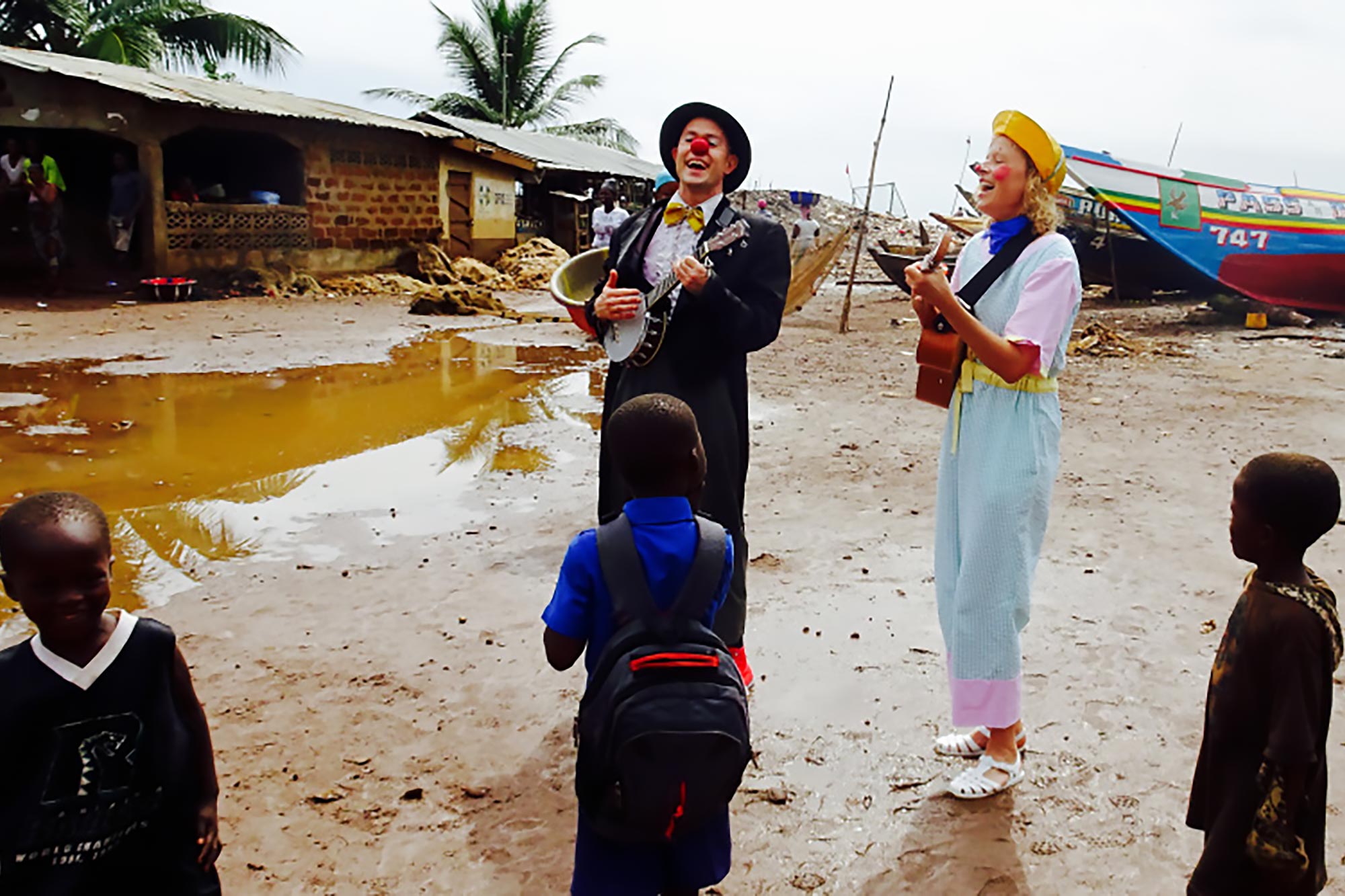Many UVA Today readers will remember Tim Cunningham; he’s the University of Virginia nursing professor and professional clown, profiled in December, who possesses the perfect combination of compassion, brilliance and humor. When mixed together, those qualities produce UVA’s very own version of Patch Adams, the famous medical doctor and clown who was brought to life in a Hollywood film starring the late Robin Williams.
“I’ve always been interested in studying the bridges between laughter and health,” Cunningham said at the time.
Now the professor, who holds a joint appointment in UVA’s Department of Drama, is on his second visit to the West African nation of Sierra Leone, where he is using his clowning skills to bring joy and levity to street children and families affected by the deadly Ebola epidemic.
Cunningham shared some of his experiences with UVA Today from Freetown, where he will entertain through the middle of June.

Tim Cunningham and Malin Öhrn, and a small helper, delight as the audience smiles and snaps pictures of the performance.
Q. How did your trip to Sierra Leone come about?
A. One year ago, my friend Malin Öhrn reached out to me and asked if I was interested in returning to Sierra Leone, this time as a clown. She had been in contact with leadership from a school that provides free elementary education to street children living in a section of Freetown called Porte. The school is called the Lotte Elf School.
Q. Who are you performing with?
A. This is a combined project between two NGOs, Clowns without Borders Sweden and Clowns without Borders USA.
Q. Where are you performing?
A. We are performing at schools and hospitals around Freetown. We also just performed for street children at a wharf where child labor is ubiquitous because of many reasons, the primary one being the extreme poverty.
Q. Can you describe a popular routine?
A. We do our best to involve children as much as possible. One that has worked particularly well for this tour involves three clowns trying to blow up a balloon. We keep failing at it, accidentally slapping ourselves in the face with it or letting it fly before it is big enough. Finally one clown blows it up a bit, keeps it in his mouth and sticks out his arm like a water pump. The other clowns understand that to blow up the balloon, they have to pump his arm. The problem is that they are not strong enough and so they bring a child up on the “stage” to pump up the balloon. The child always gets it right and is able to pump up the balloon with ease.

Tim Cunningham performs the ever-popular balloon trick with help from a young participant in Sierra Leone.
Q. What sort of reactions do you get from the audience?
A. Reactions vary from place to place; laughter, cheers and always an invitation to come back. Today an imam of a local school came on stage and participated in one of our magic tricks. At a second show today, a school’s principal came up to us after the show and said they needed more shows like this in the local schools. He said more artists needed to come to bring laughter and change the energy of the school.

Q. Where else have you performed with Clowns Without Borders?
A. I think this is my 22nd project with CWB. Other countries where I’ve performed: many places in the U.S, Mexico, Haiti, Peru, Colombia, Brazil, Ecuador, South Africa, Swaziland, Lesotho, the Philippines, and most recently Turkey and now Sierra Leone.
Q. Why is this work important to you?
A. Two reasons. One, I don’t believe that laughter is the best medicine, but I do believe that it sadly, and all too often, is the only medicine available. Two, we live in an ever-divisive world – look at our own country since the most recent election. My colleague, Clay Mazing, once said, “We all laugh in the same language.” Laughter brings us together; it is vital to our existence.
Read more about Cunningham’s adventures in his blog.
Media Contact
Article Information
June 8, 2017
/content/uvas-clown-professor-delivering-smiles-charlottesville-sierra-leone

